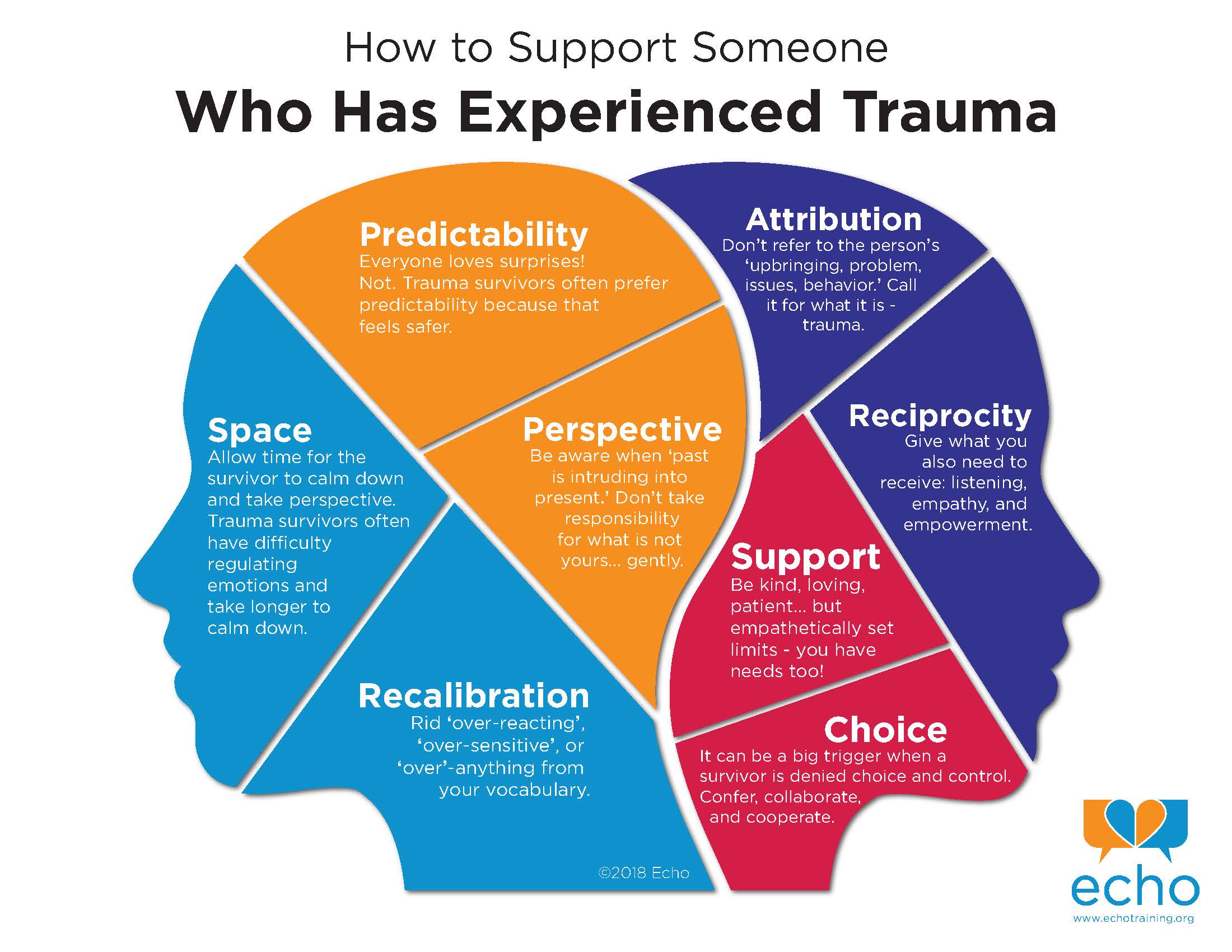

If after several weeks or months you are still experiencing many of the problems listed above, and they are interfering with your life so that you are struggling to manage at home and work, it is likely that you are experiencing what counsellors refer to as post-traumatic stress.
#Emotional trauma professional
Sometimes the problems listed above are still causing difficulties many weeks, months or years later and interfering with life so much that professional help is required. It is possible to come to terms with past events, put them in perspective, and carry on with your life.īut not everyone does reach a state of recovery. This is not to say that people forget what has happened. While most people involved in a traumatic incident will be shaken by what has happened, and may experience some of the problems listed above, most people adjust well to their experiences and recover within the first three months to a level where they are able to get on with their lives as they did before. their capacity to understand and process their reactions/responses to trauma.the amount of support and help they have.the extent to which there are other stresses and strains in their life.


differences in ways of expressing emotion.Individual reactions will vary from those of other people for a number of reasons, including: Everyone’s reactions will be individual and not everybody will experience all of the feelings described above, nor experience them to the same degree. It is important to emphasise that there are no right or wrong ways to react after a traumatic experience. feelings of irritability, frustration, and anger – if things do not work out as you want.loss of confidence and self esteem – feeling that nothing you do is good enough.drink and drugs – sometimes, there is a tendency for people to rely on drink or drugs as a means of coping.You may feel that too little, or the wrong sort of help and support is offered, or that others do not appreciate what you have been through and expect too much of you impact on relationships – the experience of trauma and bereavement can however sometimes place strains on relationships.physical reactions – such as feeling shaky, trembling, muscular aches, tiredness, difficulty concentrating, being forgetful, palpitations, shallow rapid breathing, dizziness, stomach upset, nausea, vomiting and diarrhoea, disturbance of menstrual cycle or loss of interest in sex.behavioural avoidance – of activities, places, people and situations which remind you of the incident.mental avoidance – of thoughts and memories associated with the event.disappointment – thinking that other people (including family) do not understand.withdrawal – retreating into yourself, avoiding company.emotional numbness – feeling detached and unable to have feelings.anger – at the injustice or the person who is responsible.sadness – feelings of low mood and tearfulness.anxiety – feelings of fearfulness, nervousness and sometimes panic.guilt and shame – feelings about letting yourself or others down, about being in some way responsible, or because you survived when others didn’t.feeling overwhelmed - by intense feelings and bodily sensations that you feel you cannot handle.feeling as if it were happening again – this may feel as if the traumatic events are recurring all over again.intrusive memories – thoughts or images of the traumatic event ‘come out of the blue’, or are triggered by sounds, smells, or sights that somehow bring it all back.difficulty sleeping – difficulty in getting off to sleep, waking up during the night, having vivid dreams or nightmares.being jumpy – easily startled by loud noises, sudden movements, etc.being on edge – on the lookout for danger, worrying that something is going to happen.The sorts of experiences that are reported may include: It is important to understand that to think and feel this way immediately following trauma is a normal response to an abnormal situation. In the days and even weeks following an event, many people will continue to feel confused, distressed and fearful. In the first few hours people may be shocked and stunned and have difficulty believing what has happened to them. Most people are affected in some way by trauma. We hope the information will help you to understand and handle your thoughts and feelings. This article will give you an idea of some general ways in which people often react. You may have difficulty in collecting your thoughts and handling your feelings about what has happened. Different people exposed to the same trauma may respond in different ways. Following traumatic events you are likely to experience a range of unfamiliar psychological, emotional, and physical reactions.


 0 kommentar(er)
0 kommentar(er)
